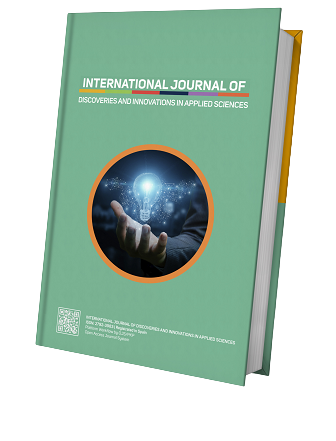Comparing Estimation Methods for Multilevel Regression Parameters
Keywords:
Multilevel Regression, Maximum Likelihood, Parameter Estimation, Variance Constraints, Simulation StudyAbstract
Multilevel regression models are widely utilized in various fields, such as health, education, and agriculture, due to their ability to address dependencies between variables at different levels of aggregation. This study compares two estimation methods for parameters in multilevel regression models: the maximum likelihood method (MLE) and the variance constraints method (RCR). Utilizing simulation experiments repeated 1000 times across different sample sizes (15, 40, and 60), the study evaluates these methods using the Akaike Information Criterion (AIC) and mean square error (MSE). Results indicate that the MLE consistently outperforms the RCR in terms of lower AIC and MSE values, especially as sample size increases. Despite the closeness in efficiency between the methods at smaller sample sizes, the MLE's superiority becomes more pronounced with larger samples, suggesting its robustness and reliability for parameter estimation in multilevel regression models. This finding is crucial for researchers seeking accurate and efficient estimation techniques in hierarchical data analysis.
References
W. J. Browne and D. Draper, "A Comparison of Bayesian and Likelihood-Based Methods for Fitting Multilevel Models," Journal of the Royal Statistical Society: Series A (Statistics in Society), vol. 169, no. 3, pp. 625-641, 2006.
L. Beckmann, M. C. Bergmann, F. Fischer, and T. Mößle, "Risk and Protective Factors of Child-to-Parent Violence: A Comparison Between Physical and Verbal Aggression," Journal of Interpersonal Violence, vol. 36, no. 3-4, pp. NP1309-NP1334, 2021.
M. S. Kovačević and S. N. Rai, "A Pseudo Maximum Likelihood Approach to Multilevel Modelling of Survey Data," Communications in Statistics-Theory and Methods, vol. 32, no. 1, pp. 103-121, 2003.
M. Moeyaert, D. Rindskopf, P. Onghena, and W. Van den Noortgate, "Multilevel Modeling of Single-Case Data: A Comparison of Maximum Likelihood and Bayesian Estimation," Psychological Methods, vol. 22, no. 4, pp. 760-778, 2017.
S. D. Pimentel, L. C. Page, M. Lenard, and L. Keele, "Optimal Multilevel Matching Using Network Flows: An Application to a Summer Reading Intervention," The Annals of Applied Statistics, vol. 12, no. 3, pp. 1479-1505, 2018.
J. Thurnherr, A. Berchtold, P. A. Michaud, C. Akre, and J. C. Suris, "Violent Adolescents and Their Educational Environment: A Multilevel Analysis," Journal of Developmental & Behavioral Pediatrics, vol. 29, no. 5, pp. 351-359, 2008.
S. Rabe-Hesketh and A. Skrondal, "Multilevel Modelling of Complex Survey Data," Journal of the Royal Statistical Society: Series A (Statistics in Society), vol. 169, no. 4, pp. 805-827, 2006.
J. Thurnherr, A. Berchtold, P. A. Michaud, C. Akre, and J. C. Suris, "Violent Adolescents and Their Educational Environment: A Multilevel Analysis," Journal of Developmental & Behavioral Pediatrics, vol. 29, no. 5, pp. 351-359, 2008.
M. L. Wong, R. K. W. Chan, D. Koh, H. H. Tan, F. S. Lim, S. Emmanuel, and G. Bishop, "Premarital Sexual Intercourse Among Adolescents in an Asian Country: Multilevel Ecological Factors," Pediatrics, vol. 124, no. 1, pp. e44-e52, 2009.
R. Triebel, P. Pfaff, and W. Burgard, "Multi-Level Surface Maps for Outdoor Terrain Mapping and Loop Closing," in 2006 IEEE/RSJ International Conference on Intelligent Robots and Systems, pp. 2276-2282, Oct. 2006.
J. R. Zubizarreta and L. Keele, "Optimal Multilevel Matching in Clustered Observational Studies: A Case Study of the Effectiveness of Private Schools Under a Large-Scale Voucher System," Journal of the American Statistical Association, vol. 112, no. 518, pp. 547-560, 2017.
Downloads
Published
How to Cite
Issue
Section
License
Copyright (c) 2024 Kareem Khalaf Aazer

This work is licensed under a Creative Commons Attribution 4.0 International License.




